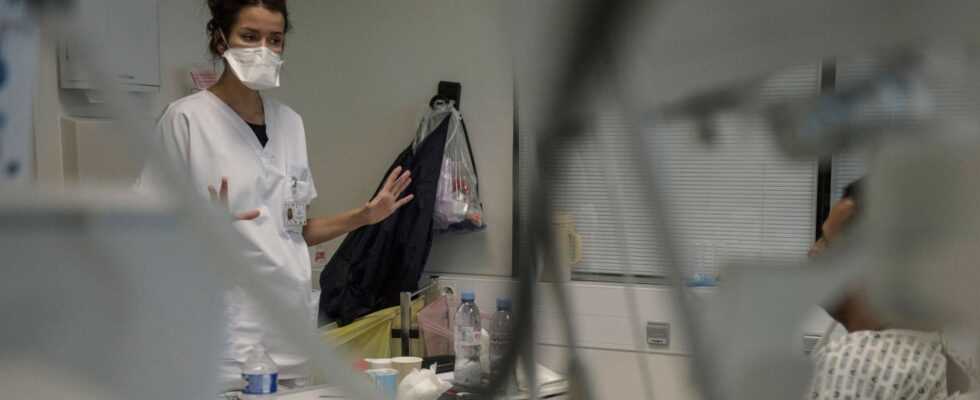The Omicron wave spares no sector. Cases of contamination are also increasing among hospital staff. Hospital management are forced to reorganize their teams. An additional task they would have done well, in the midst of an epidemic recovery.
Absences that are sometimes impossible to compensate for
Two nurses less on the schedule of Professor Bruno Mégarbane, head of the intensive care unit at Lariboisière hospital, in Paris. Caregivers tested positive, and symptomatic, therefore forced to isolate themselves until the end of the week. “It’s not the worst we have had! At Christmas, four caregivers were off and we had to close three beds,” he recalls. Absences that it is sometimes impossible to compensate for by recruiting temporary workers, due to lack of time. “It’s very difficult because people usually call the morning of their working day to let them know that they won’t be able to come because they have tested positive,” he explains.
“So that puts the team in difficulty because often we cannot physically close beds since there are patients in them. So the workload for the remaining staff increases … But we have no choice. “. With around 10% of the beds already closed in his hospital for lack of sufficient staff, Professor Mégarbane fears that he will still have to cut places to welcome new patients.
A sword of Damocles in services already out of breath
He’s not the only one worried about absenteeism in his team. At Melun hospital, in intensive care, no case of contamination has so far been detected, out of a workforce of 50 nurses in total. Something to reassure the head of department, Doctor Mehran Monchi. “The periods of leave are for the most part over, we can possibly afford to replace one or even two people, we have fewer fears than last week. But this balance is very precarious for the moment,” he says. .
“A missing person is a person who can really be central to us … In practice this means reducing the monitoring of patients, that we cannot leave overnight because we are missing a nurse “, he notes. “For the moment, it is not the case but it is one of the risks which one takes if the epidemic spreads to a very important level.”
Doctor Monchi apprehends the coming days in the face of the number of contaminations which is soaring: “During the first wave, we had gone up to 60 beds in the department, there we are at 30 and we cannot do more, that is. impossible “, he breathes.
